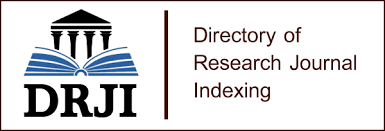MOZAMBIQUE AND NEPAL: REVOLUTIONARY EXPERIENCES ON THE CUSP OF SOCIALISM WHICH REMAINS UNBORN
DOI:
https://doi.org/10.55327/jaash.v10i2.336Abstract
The revolutionary experiences of Mozambique and Nepal present a stark case of revolutions on the verge of socialism which remains unborn. Owing to several factors, the communists and socialists at the helm of these states for several years now have faltered to embark on decisive socialist paths despite their firm hold of state power. The same reportedly hindered its march to socialism. In 1985, Frelimo finally shredded its Marxist-Leninist ideology and embraced the neo-liberal policies in the guise of development and modernity in exchange for loans and aid from multilateral financial agencies of the West. Nepal, on the other hand, is being led by an alliance of communist and socialist parties. However, its march towards socialism is supposedly hampered by the country’s economic backwardness, dependence on aid and labor wages from India and the Middle Eastern countries, ballooning debt from multilateral institutions, the predominance of the peasant class over the proletariat, and the inability of the ruling coalition to forge on a single road to socialist construction. This paper looks into the feasibility of socialism being attained in Nepal and Mozambique whose economies and productive forces are undeveloped, with their people in subsistence living and a meager awareness of socialist ideals among the masses. ? The paper argues the possibility of building socialism as shown by the Soviet and Chinese experience, provided that there is a strong proletarian party whose vision and ardor are consistent with the Marxist theory of history and class struggle.
Downloads
Published
How to Cite
Issue
Section
License
Copyright (c) 2024 Jacinto, Jr. Valila

This work is licensed under a Creative Commons Attribution 4.0 International License.
Copyrights for articles published in Journal of Asian and African Social Science and Humanities are retained by the authors, with first publication rights granted to the journal. The journal/publisher is not responsible for subsequent uses of the work. It is the author's responsibility to bring an infringement action if so desired by the author.
Articles published in Journal of Asian and African Social Science and Humanities are published under the Creative Commons Attribution (CC-BY) license, which permits others to distribute, remix, tweak, and build upon your work as long as they credit you for the original creation.
Â















